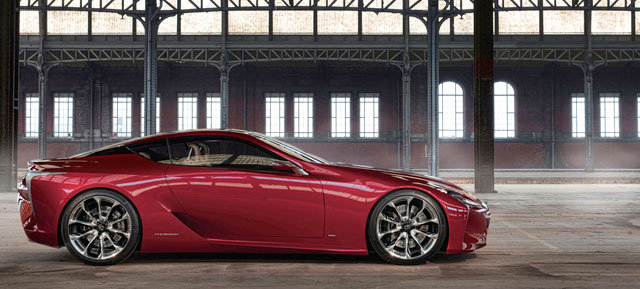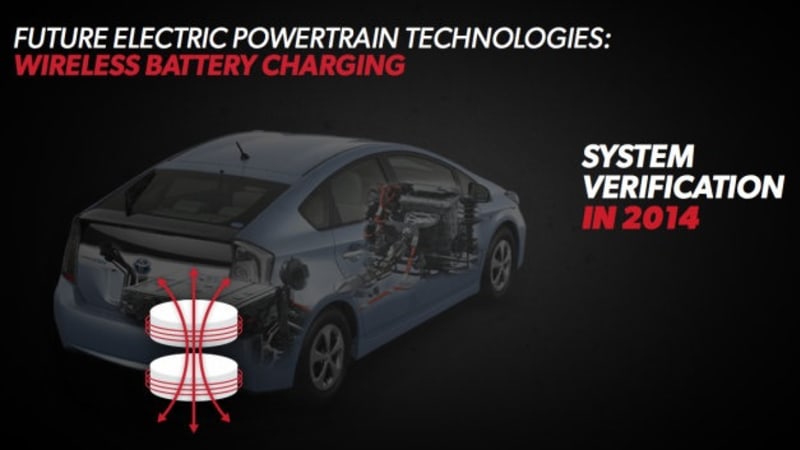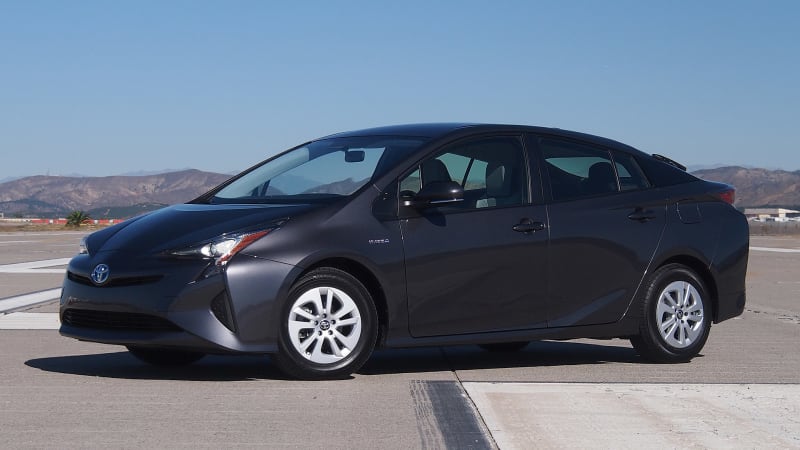Here We Go Again: Lexus attacks EVs in new ad [UPDATE]
![Here We Go Again: Lexus attacks EVs in new ad [UPDATE] Here We Go Again: Lexus attacks EVs in new ad [UPDATE]](http://o.aolcdn.com/dims-shared/dims3/GLOB/legacy_thumbnail/800x450/format/jpg/quality/85/http://o.aolcdn.com/dims-shared/dims3/GLOB/crop/2306x1186+0+0/resize/628x323!/format/jpg/quality/85/http://hss-prod.hss.aol.com/hss/storage/midas/535b75e307a234566f04b47add9c6791/200719547/14878342649_a9b1ac41d7.jpg)
UPDATE: We got a comment from founding member of Plug In America Paul Scott on this ad. It's available below.
The last time Lexus attacked plug-in battery vehicles in an ad, it had to apologize. The company is remaining on message, though, and has revisited a hybrid-vehicle advertising campaign that implies that driving a battery-electric vehicle is a big waste of time, because of all the charging you need to do. With the new spot, Lexus once again raised hackles of plug-in vehicle advocates because, once again, the accuracy is questioned.
"The ad's message was that a consumer could [drive] a vehicle with advanced technology today, without sacrifice or change in habit." - Lexus spokesman Brian Bolain
Lexus is running print ads (click to enlarge) in publications like Wired poking fun at EVs, the International Business Times says. Lexus highlights range anxiety in the spot, comparing the amount of time it takes to fully recharge an EV - and the idea that air conditioning and using the radio can shorten an EV's range - to the fun of just driving a Lexus."The [print] ad was merely intended to paint a picture of life with a hybrid, which is basically no different from life with a traditional gas-powered vehicle, versus life with an EV, which can have challenges or at least uncertainties," Lexus spokesman Brian Bolain told AutoblogGreen. "In other words, at its core, the ad's message was that a consumer could participate in driving a vehicle with advanced technology today, without sacrifice or change in habit."
The campaign picks up where Lexus's previous anti-EV campaign left off this spring. A website promoting Lexus's hybrids (and parent company Toyota's H2 vehicles) claimed that there was a hydrogen refueling infrastructure set up in 20 US states (not anywhere close to true). Plug-in advocates were also quick to note that higher-powered EV recharging systems can allow a plug-in to be recharged in far less than the four hours the Lexus site claimed.
Of course, Toyota has a lot more skin in the game when it comes to hybrids and, starting next year, hydrogen fuel-cell vehicles than it does for plug-ins. Through August, the company sold just 842 RAV4 EVs and about 11,500 Toyota Prius Plug-in Hybrids in the US. That compares to almost 19,000 Nissan Leaf EVs and a Tesla Model S count that's likely close to that figure as well (Tesla breaks out neither monthly sales numbers nor US-only sales for the Model S). Lexus sold almost 29,000 hybrid vehicles during the first eight months of this year.
Founding member of Plug In America Paul Scott gave AutoblogGreen his opinion on this ad:
Toyota should be ashamed, but we know they aren't. This is how big auto OEMs play the game. Denigrate the competition instead of building a better product.
No where in the ad does it talk about the negatives of driving a hybrid. The most important issue is - they use gasoline. This is a big deal when you look at the massive external costs of oil. Military protection runs some $80 billion per year, exclusive of wars. We all know the Iraq war was fought because of their oil. Dead and wounded soldiers, dead civilians, these are not things the internal combustion fan boys like to discuss, but anyone buying gas needs to understand that their demand for oil means they "own" a piece of those deaths.
Tens of thousands of people die prematurely from the effects of internal combustion pollution. Millions have their health compromised. No where in the ad do they discuss this.
Our environment is heavily polluted from the extraction, shipping, refining, distributing and eventual burning of oil. Climate change is exacerbated by burning oil. All Lexus cars and SUVs burn oil. They are 100% reliant on oil in order to operate because they have no plug.
So, Toyota makes up lies in an ad to make their product seem better, but they do so at their peril as a company. The end game is clearly made up of personal transportation being 100 percent electric, and the electricity being 100 percent renewable. There are no other options. Toyota might wish it to be otherwise, but we know better. The sooner they understand this, the better, but I'm not holding my breath. For now, I'm just going to tell everyone to boycott Toyota for being a company that cares more about money than people.
Source

![New Toyota Prius PHEV could have 35-mile all-electric range [UPDATE]](http://o.aolcdn.com/dims-shared/dims3/GLOB/legacy_thumbnail/800x450/format/jpg/quality/85/http://o.aolcdn.com/hss/storage/midas/a25071a48e5cd6ae9b88ef403f94ae66/202351143/phev.jpg)




